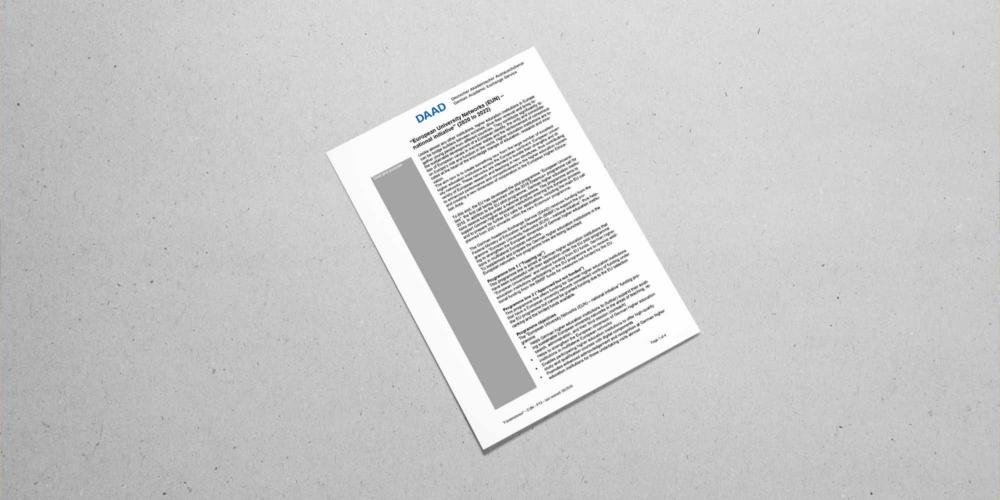

German Ministry to provide significant boost for “European Universities” concept
Gerry O'Sullivan
Posted: 11 September, 2019
The German Academic Exchange Service (DAAD), with funding from the German Federal Ministry of Education and Research (BMBF), has launched its national scheme supporting the EU-funded “European Universities” initiative. The national programme aims to strengthen the European dimension of German higher education institutions (HEIs) in multilateral European networks and to support the former in the upcoming EU calls for applications, including in the main EU call(s) expected from 2021 onwards under the new Erasmus+ programme.
For this purpose, two programme lines have been launched:
- Programme line 1 (“Topping up”): This programme line is aimed at German HEIs that have been successful with their application under the EU pilot programme “European Universities”. The grant is limited to a maximum of EUR 750 000 per German HEI (max. EUR 250 000 per budget year).
- Programme line 2 (“Approved but not funded”): This programme line offers funding for German HEIs that have applied for the EU pilot call within consortia that were evaluated as of very good quality, but which could not be supported because of the limited EU funds available. The grant is limited to a maximum of EUR 450 000 per German HEI (max. EUR 150 000 per budget year).
The national programme defines the following objectives, among others:
- Enabling participating HEIs to offer high-quality study and qualification courses with digital components;
- Helping students and academic scholars to acquire cross-cultural skills by increasing international mobility;
- Promoting the third mission of HEIs by strengthening contact with society and the economy.
The funding period for both programme lines begins on 01 January 2020 at the earliest and ends on 31 December 2022 at the latest. The application deadline is 31 October 2019.
More information here (in German) and here (in English).
(Courtesy of Academic Co-operation Association Newsletter – Education Europe August 2019)

